— This week’s Monday Roundup is sponsored by Western Bikeworks, who remind you to check out their gargantuan warehouse sale April 5-6.
Here’s the bike news from around the world that caught our eyes this week:
Bike ergonomics: A retired doctor has some simple tips for stopping long bike rides from screwing up your body.
Lawsuit incentive: People on foot or bike who win civil lawsuits against people in cars would get minimum damage awards — $1,000 plus attorney fees — under a proposed Oakland law.
“Ski lift for cyclists”: This Norwegian microtrolley grabs your right foot and pulls you uphill. (Start the video 1 minute in.)
Highway fund dry: When the federal Highway Trust Fund’s checks start bouncing this summer, Oregon will lose 30 percent of its federal funding and delay or cancel “a large number” of road projects, possibly including planned safety improvements to Southeast Powell Boulevard and Division Street. A 10 cent federal gas tax hike would be one way to eliminate the gap.
Bike share prescription: Boston doctors can now write low-income patients $5 prescriptions for one-year bike share memberships. (A standard Hubway membership costs $85, but the discount is actually available without a prescription, too.)
Short-term investment: The Bay Area Toll Authority built a temporary bike and pedestrian path for $9.4 million while the new Bay Bridge was under construction; seven months later, it’s being torn down to make way for a permanent one.
Political activity: Mayor Betsy Price of Fort Worth, Tex., holds a series of “rolling town halls” every spring.
Domestic framebuilding: There’s only one large-scale bicycle manufacturer still in the United States: Worksman Industrial Cycles in Queens, N.Y. Most of the 60 employees live within walking distance.
Jaywalking endorsement: Oregonian columnist Steve Duin mounts a defense of jaywalking in downtown Portland, where the streets are safe, the practice is a “birthright” and ticketing pedestrians would be “antithetical.”
Biking diversity: The national boom in urban bike transportation is a factor in the growing ethnic diversity of people who ride.
CRC reboot Two Republican legislators in Washington “hope to have about 30 lawmakers signed on to the Bistate Bridge Coalition,” a plan for a new Columbia River crossing without light rail, by today. Oregon Democrats say they doubt their state will back it without rail attached.
Bridge countdown: In joking reply to a Clark County Commissioner who predicted that a new bridge east of Interstate 205 would be ready for use within five years, The Columbian has started a tongue-in-cheek countdown clock.
Bike share shopping: Of patrons who arrive at DC-area businesses using Capital Bikeshare, 12 percent said they’d be shopping somewhere else if not for the nearby bike share station.
Bixi bankruptcy: However Portland decides to pay for its bike sharing system, investing in a private company that’s supposed to sell the technology to other cities probably isn’t a good idea. Montreal doesn’t even seem to know if it’s losing $31 million or $40 million on that deal.
New journal: The just-launched Journal of Transport and Health looks like it’ll be a good new resource for active transportation wonks.
We’ve been writing about density-friendly property tax reform lately, and your video of the week is a five-minute explanation from Strong Towns of the advantage of taxing based on land value rather than building value:



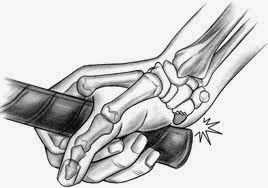
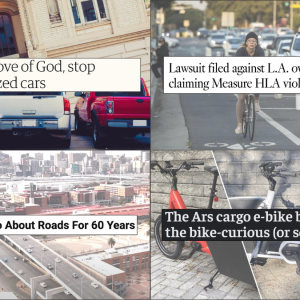
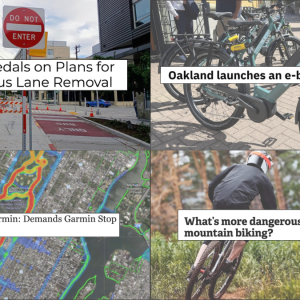
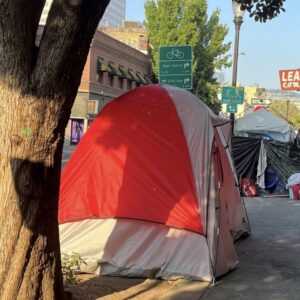
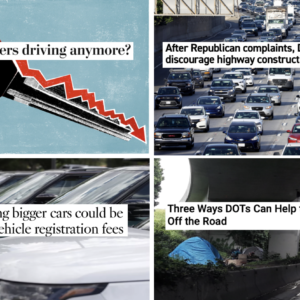
Thanks for reading.
BikePortland has served this community with independent community journalism since 2005. We rely on subscriptions from readers like you to survive. Your financial support is vital in keeping this valuable resource alive and well.
Please subscribe today to strengthen and expand our work.
The threatened transportation funding list also appears to include:
20’s Bikeway
Foster Road Streetscape
Red Electric Trail
East Portland Active Transportation to Transit
Full list here:
http://www.oregon.gov/ODOT/TD/STIP/STIP/DRAFT_STIP_15-18.pdf
The trust fund is a big deal. There simply aren’t enough cars-vs-people wedge issues to fix the trust fund without tax increases, so the money’s got to come from somewhere. Expect your health to be held hostage over that.
If you like your plan, can you keep it?
I feel like the USDOT leaders could be doing more to highlight the Highway Trust Fund issues. I haven’t heard anyone at the federal level highlight the fact that gas taxes have not increased in two decades. They need to point out that with increased efficiency and inflation, the gas taxes we pay now are the lowest in history. They need to take a hard stand: No new capacity projects until the gas tax is raised. The funding levels we have now should be sufficient to maintain what we have, but we can’t keep blowing billions on expansion projects.
“They need to point out that with increased efficiency and inflation”
Not quite. The drop in driving (VMT) is second only to the fact that the gas tax is not only not indexed to inflation, but it is not indexed to the real price of asphalt, which has been rising much faster than CPI inflation. It is my understanding that increased new car fuel efficiency, though we hear lots about this, has almost nothing to do with our gas tax woes.
CRC Reboot:
It’s Alive! It’s Alive!!
cue musical theme from Weird Science
The Land Tax argument works well for urban areas. In rural areas it would quickly drive out the poor and farmers. For things like this it’s well to use the right tool for the right job.
Glenn, when I’ve heard proponents of the Land Tax argument before, it’s always been made clear that it’s just for urbanized areas – i.e., places where you want to encourage denser development – and not for rural areas.
Fortunately this works very well in Oregon, where every incorporated city has a UGB.
Ten cent increase, my ass. It was 10 cents in 1999. Try (state, local, federal) 40 cents: http://dr2chase.wordpress.com/2014/03/28/weve-been-subsidizing-driving-for-years/
And then let’s talk about carbon taxes, pollution taxes, noise taxes, and perhaps congestion pricing.
re built in USA, i am pretty sure waterford/gunnar still is.
Steve Duin gets in some tasty clickbait. No flies on him.
Having previously lived in Seattle, where the police periodically enforce the jaywalking statute i>vigorously and the media often portray pedestrians’ reluctance to cross against the light as an example of how “polite” Seattleites are, I’m glad to be in Portland. The reality is that it’s not politeness: it’s fear. Everyone in Seattle knows someone who’s gotten a jaywalking ticket.
As in my native Minneapolis, police in Portland don’t enforce jaywalking laws that much, and people feel more empowered to make their own decisions about crossing the street instead of being slaves to automatons.